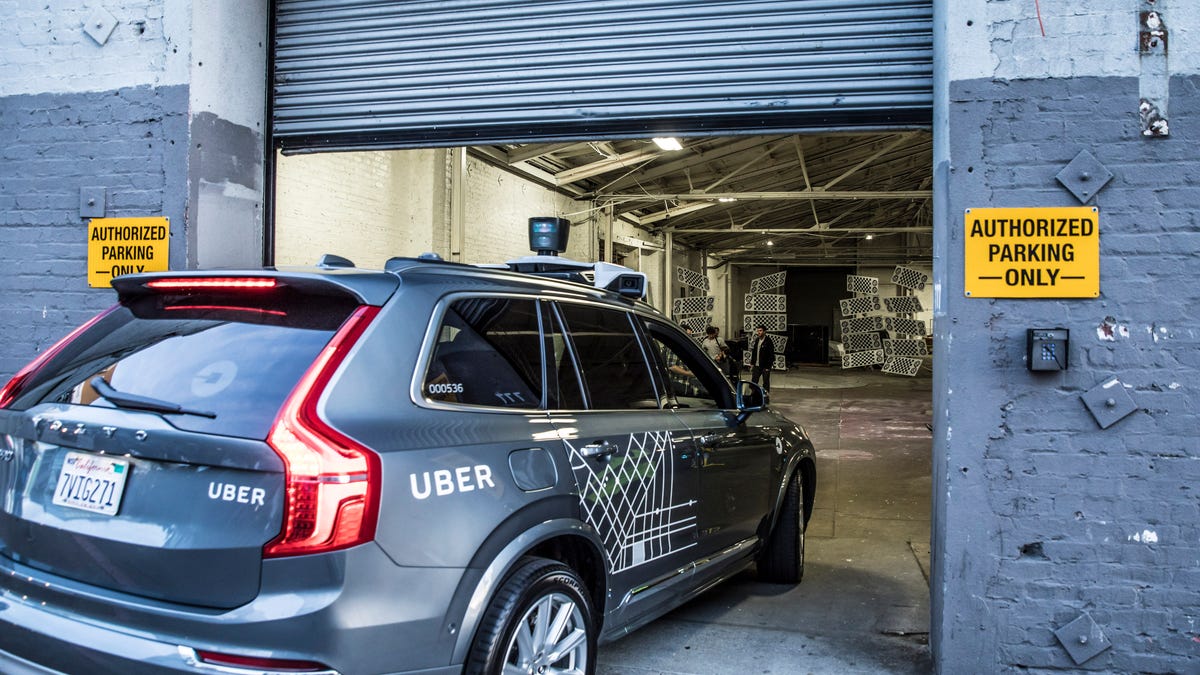Uber changes course, applies for CA self-driving permit
After a botched rollout of its autonomous vehicles in San Francisco and months of refusing to get a state permit, Uber says it will now follow the rules.

Uber had to halt its self-driving car project in San Francisco in December, but now it's working to bring it back.
Uber is changing its tune on getting the state required permit for self-driving cars in California.
After refusing for months to get the necessary permit to test its autonomous vehicles on public roads, the ride-hailing company said Thursday it will now abide by California rules just like more than 20 other companies working on self-driving technology in the state, including Google, Tesla, Honda, BMW and Ford.
"We are taking steps to complete our application to apply for a DMV testing permit," an Uber spokeswoman wrote in an email.
Uber made its name by pairing passengers with drivers via a phone app. Over the past six years, it's grown from small startup to multinational company with operations in more than 400 cities in 72 countries. Now Uber is going a step further, venturing into robotics and artificial intelligence with autonomous vehicles.
But Uber's rollout of these cars in California was bumpy.
Within hours of the self-driving car launch in San Francisco in December, California's Department of Motor Vehicles told the company it was breaking the law and needed to halt the program until it got a permit. Uber refused to back down and said it would keep the cars on the road.
After a week of back-and-forth between Uber and the DMV, along with an intervention from California's Office of the Attorney General, the DMV announced it was revoking the registrations of 16 of the company's autonomous vehicles. Again, the agency told Uber to get the $150 permit. Again, the company refused.
Instead, Uber packed up its cars and moved to Arizona.
Since then, Uber has brought five of its autonomous vehicles back to San Francisco's streets. The company says the self-driving systems in these cars are disabled and they're only being used for mapping. It appears, however, Uber is now ready to switch them into self-driving mode. The DMV has also confirmed to CNET that Uber is planning to get the self-driving permit.
"Uber hasn't formally submitted their autonomous vehicle tester program application, but just as we would with any other manufacturer, the DMV is providing assistance with the steps necessary to apply for and receive a test permit," DMV spokeswoman Jessica Gonzalez wrote in an email.
It's unclear why Uber has lightened its hard-line stance on getting a permit. During a conference call with reporters in December, Uber vice president of self-driving technology Anthony Levandowski said the company wouldn't get the permit was because the law didn't apply to it.
"We cannot sign up to regulation for something that we are not doing," Levandowski said. He added that the main reason Uber wanted to stay in San Francisco was because "California is our home state... its track record on innovation is second to none."
Levandowski is now embroiled in a lawsuit with Waymo, the autonomous car company owned by Google's parent Alphabet. Waymo alleges Levandowski, a former Google employee, stole 14,000 "highly confidential" files related to autonomous vehicle technology. Uber has called these claims "baseless."
Further complicating issues for Uber's self-driving car project are public safety concerns. The day of Uber's launch in San Francisco, one of the self-driving cars was recorded running a red light. Similar incidents were reported throughout the city in the following days.
Uber initially said the red light incident was due to "human error," but it was revealed last week that the car's autonomous-driving system was to blame. Citing two unnamed Uber employees, as well as internal company documents, the New York Times reported that Uber's cars failed to recognize six traffic lights in San Francisco.
Batteries Not Included: The CNET team reminds us why tech is cool.
CNET Magazine: Check out a sample of the stories in CNET's newsstand edition.

